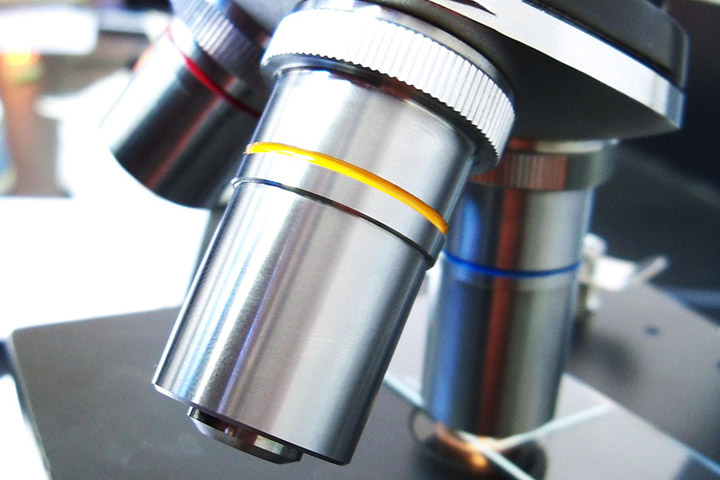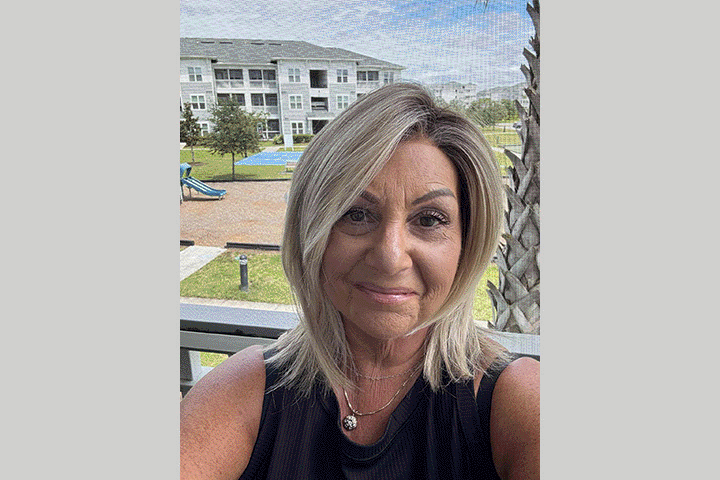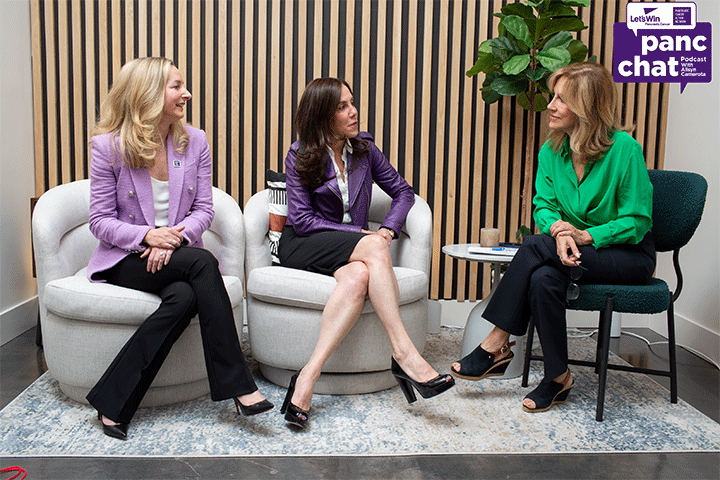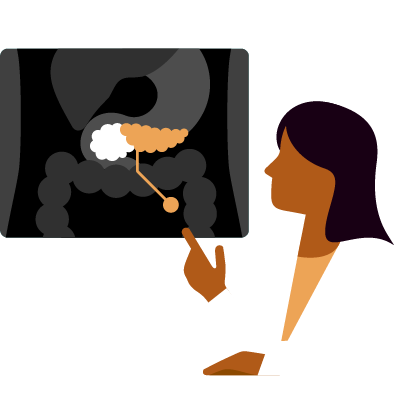Life With Pancreatic Cancer and on Clinical Trials
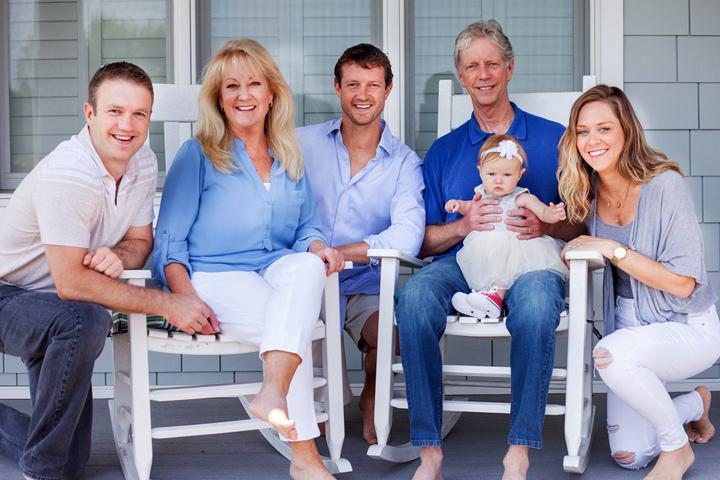
- Jaundice leads to pancreatic cancer diagnosis
- Chemotherapy clinical trial to shrink the tumor
- Whipple surgery, then post-surgical chemotherapy
- Recurrence and another clinical trial
I’m 66, semi-retired from a career in basketball, where I coached, and then spent 30 years working in the NBA in various positions from scout to general manager.
On August 24, 2017, while having breakfast, my wife noticed that my eyes were a little yellow. She is a nurse, so I generally pay attention to her medical judgements. She had me at the doc’s office the next morning getting blood work. My PA, Jana Marganian, got my results in a few hours and sent me for a CT scan that afternoon at Newport Hospital (Rhode Island). She called me that evening and told us that there was a mass on my pancreas that needed to be checked out further. The mass was pushing on my bile duct and was causing the jaundice.
In one procedure I had two scopes done. One put a stent in the bile duct and the other was for a biopsy of the tumor. As expected, it was cancer. Fortunately, we caught it early and it had not spread.
Picking a Clinical Trial for Treatment
We interviewed a number of doctors and they all felt that the tumor was “borderline resectable” and needed to be shrunk before surgery. I was fortunate that Dr. Howard Safran had a clinical trial for pancreatic cancer at the Lifespan Cancer Institute in Rhode Island.
We did our research and decided that this treatment—FOLFOX-A—was as good as we could find. I started treatment the next week (10 infusions—one every two weeks). Despite hearing about all the potential side effects from FOLFOX-A, I handled it very well and worked out five days a week the entire time. My only issue was the neuropathy in my feet and hands. I also had genomic testing during my first chemo and the results showed that I did not carry a genetic mutation for this cancer.
After 20 weeks of chemo, I went to Mass General in Boston for five days of proton radiation with Dr. Jennifer Wo. At the same time I also had chemo with capecitabine for two weeks with Dr. Jill Allen. We did a lot of research on surgeons and chose one of the best in the country, Dr. Carlos Fernandez del Castillo, also at Mass General.
Time for Surgery
I had Whipple surgery at Mass General on March 7, 2018. The surgery went very well and I had clear margins everywhere. Out of 15 lymph nodes removed, two were positive for pancreatic cancer. Six weeks after surgery I began chemo with Gemzar, again with Dr. Safran. This treatment was 12 infusions (two weeks on, one week off) and was done to improve the chances of not having a recurrence. The only side effect from this chemo was a little fatigue and swelling in my feet. Again, I was fortunate.
I had my first post-surgery CT scan about 10 weeks after my surgery, while I was having chemo with Gemzar, and it came back clean. Another scan two weeks after I completed chemo was also clean, but my tumor marker number was elevated. Dr. Safran rechecked my blood in mid-October 2018 (seven weeks after the scan) and the tumor marker was significantly elevated. A scan confirmed that the cancer has returned, although it is still has not spread beyond the pancreas.
I am starting an immunotherapy trial in mid-November using durvalumab and MEDI5083. This trial is through Dr. Safran. The return of the cancer is certainly disappointing, but not a surprise and I am preparing for these next treatments with the same attitude and effort that I have had to this point. One day at a time, one scan at a time, and every day is a good day.
Musings on Life with Pancreatic Cancer
As I sit in chemo waiting rooms, I see many people that are always there alone. I see people that take a taxi to get to their treatments, because they have no one to drive them. I see people from all walks of life. The worst thing I see is young people in cancer treatment. If someone has to get cancer, it should be old guys like me.
All these observations have reconfirmed what I already knew, and that is how lucky I am to have an unbelievable support system of family and friends. My wife, sons, daughter-in-law, and of course my new granddaughter Graycen have been incredible with their research, their positive attitude, and their love (Graycen did not do any of the research). Also, having a therapy cat like Rebound is very beneficial, especially for nap time.
I strongly suggest marrying a nurse. Her knowledge, assertiveness, and no BS attitude have motivated me through this entire process. She has sacrificed her entire lifestyle for me. Having two brothers who are also my best friends is another huge plus. You can’t imagine how much it means to me to get those phone calls or messages from my family and friends. Even “positive attitude guys” like me have some down times and every time that happens, I magically get a call from family or friends and that always puts me back on track. I truly appreciate everyone’s support and want you to know how thankful I am.
There are so many positive things that have come with this challenge. I have learned a great deal about life through this cancer. I have always felt that even in the most difficult times we should learn something positive. There are a lot of myths, scams, and greed that get in the way of true knowledge, but here are a few things that I have found to be legitimate in improving your health. They may not keep you from getting cancer, but if you do get it, you will have a much better chance of beating it.
- We all have the potential to have cancer in our bodies. The trick is to make sure that our systems are working well. In other words, do everything you can to improve your health.
- Diet is crucial. After studying many of them, I found a few common threads that make sense. Sugar feeds cancer. Cut out as much “bad” sugar as you can (ice cream, cookies, soda, etc.). Read the labels on your food—you will be surprised by how much sugar is in soups and sauces. Watch out for processed food.
- Eat organic whenever you can. Cut down on red meat and when you eat any meats, make sure that they are organic. Fish and shellfish are fine a few times a week but look for “low mercury” fish. Eat greens with every meal. If you are going to drink, do it in moderation.
- If you want to take supplements discuss it with your doctor first. There are many good supplements, but there are more bad ones and many of them can conflict with other medications that you may be taking. Do your homework and talk to your doctors.
- Staying in good shape is a major plus. I’ve met many people going through the same journey that I am and there is no doubt that people that are in good shape do much better with everything (chemo, radiation, recovery from surgery).
- Be assertive with medical professionals. This requires that you also do some homework on your own. Get second opinions. Having people to advocate for you is important.
- Have a positive attitude. Eliminate and/or learn to deal with stress: yoga, meditation, counseling, whatever it takes.
- Surround yourself with positive family and friends. Everyone’s prayers, positive energy, or just positive thoughts have truly helped me.
- Try to be nice to people, even your brothers.
Appreciate every day, every relationship and have fun. No one can do life on their own. Accept and embrace the love and help from your family and friends. Though I am making great progress in this challenge, I still have a long way to go, so keep those prayers, positive energy, and positive thoughts coming.
Rob passed away five months after sharing his story with Let’s Win. His pursuit of clinical trials has helped extend the knowledge available to everyone that comes after him. We offer our deep sympathy to his family.
